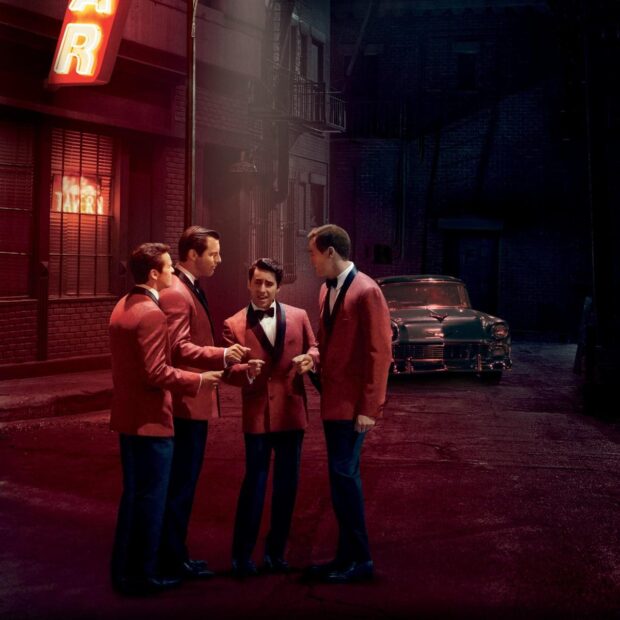The creation of a bona fide British Institution.
It takes a certain alchemy to turn plywood sets, wobbly cameras, and a reluctant leading man into a cultural cornerstone and An Adventure in Space and Time, Mark Gatiss’ loving tribute to the creation of Doctor Who, understands that magic trick better than most. It doesn’t just dramatize television history; it honours mythmaking itself – not the Gallifreyan kind, but the BBC kind, with its labyrinth of politics, paper-pushers, and flashes of unfiltered genius. For a production tasked with celebrating a half-century of adventures in time and space, it wisely chooses not to chase grandeur, and focusses instead on the smaller, human story at the heart of this grand cosmic adventure.
David Bradley, stepping into William Hartnell’s shoes with a mix of meticulous accuracy and emotional heft, anchors the entire affair. His Hartnell is prickly and proud but also bruised by the creeping irrelevance of age in an industry obsessed with change. The choice to centre the film not around the birth of a show, but around the fading light of its first star, grants An Adventure in Space and Time a poignancy most biopics have to import. There’s no lazy hagiography here, just the aching reality of being overtaken by the very future you helped usher in.
Jessica Raine brings a determined steel to Verity Lambert, whose presence cuts through the BBC’s smog of misogynist inertia like a laser in a fog machine. Lambert, all nerves and nerve, isn’t positioned as a crusading modern trailblazer – she’s simply required to be one, and the film has the sense to let her actions speak louder than any convenient speech about representation. Brian Cox makes Sydney Newman an exuberant, cigar-waving Canadian grenade lobbed into the Corporation’s comfortable complacency, but it never slips into caricature. Sacha Dhawan completes Doctor Who‘s holy creative trinity as director Waris Hussein.
A pre-Master casting Dhawan gives Hussein a quiet gravitas, capturing the particular challenge of directing something so wildly ambitious while navigating the BBC’s barely concealed discomfort at his heritage. His scenes with Raine’s Lambert offer a gentle counterpoint to the institutional bluster elsewhere – two outsiders held to higher standards, helping each other raise the bar. None of them are treated like icons in a museum display; they’re scrappy, brilliant professionals trying to make something out of nothing on a shoestring and a prayer.
For all its meticulous detail and Easter-egg scatterings, what makes the film sing is its tone: warm without treacle, witty without mockery, reverent without genuflecting. The sets may have been recreated with uncanny precision, but the heart is all its own. It feels like a production made by people who not only grew up with Doctor Who but grew up because of Doctor Who – who took from it the conviction that the weird, the curious, and the out-of-step had a place in the universe. Or at the very least a timeslot on Saturday evenings.
It’s impossible to watch Hartnell’s final scenes without feeling the emotional weight of what was lost, and what was started. The quiet moment where he sees his younger replacement standing at the console is the kind of lyrical liberty only a fan could get away with, and it lands like a punch in a velvet glove. Of course, he didn’t really see Matt Smith (Ncuti Gatwa in the more recent re-airing) waiting in full costume like a spectral relay baton. Patrick Troughton was on-set, of course (played briefly but brilliantly by Reece Shearsmith) but the moment isn’t there to document – it’s there to feel. And it’s perfect.
As a keystone of the 50th anniversary celebrations, An Adventure in Space and Time performs an indispensable function. Where The Day of the Doctor played the fanfare, An Adventure played the overture. It reminded us that for all the running down corridors, paradoxes and cosmic nonsense, the story only exists because a handful of people took a gamble on something odd and new and defiantly different. The real adventure wasn’t in the TARDIS – it was in the green-lit gamble of An Unearthly Child, the insistence of a producer, the ego of a television visionary, and the pugnacious frailty of a man trying to keep up.
An Adventure in Space and Time isn’t just a love letter to Doctor Who – it’s a reminder of how fragile institutions are, how easily they could have not happened. And in reminding us that Doctor Who very nearly didn’t exist at all, it makes the fact that it still does feel more miraculous than ever, even as we stare down into the looming void of yet another open-ended hiatus.








![Is [insert film title here] a Christmas movie?](https://thecraggus.com/wp-content/uploads/2024/10/Is-Insert-Name-A-Christmas-Movie-620x620.jpg)
